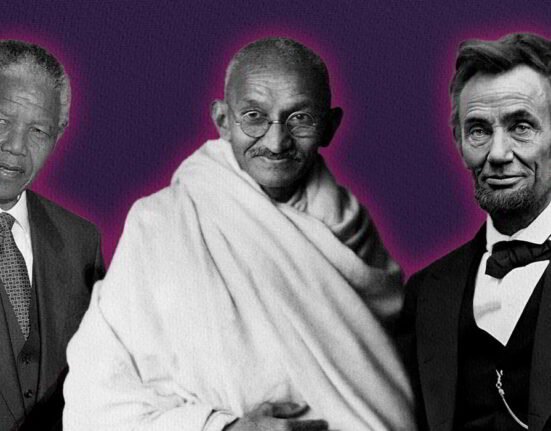When someone says that they are committed to their work or that they have made commitments to themselves, it simply means that they have planned an action and they intend to fulfil it. Commitment here refers to a certain kind of promise, which was made with the intent of fulfilling it within a certain amount of time. Commitment to self can be even more complex as most people are taught that it is selfish to keep one goal a priority.
What is commitment
Commitment can be understood as a channel, in which one promises to fulfil a certain task, to the future self. Commitment can be to short-term goals, long-term goals Or abstract goals. Many people develop a ‘commitment phobia’ or a fear of commitment when they have an internal need to control the situations around them. They may feel overwhelmed because they have committed to things they cannot fulfil due to a lack of resources.
Commitment phobia can affect how you make promises to yourself, to your work, in your life as well as influence your decision-making skills in that relationship and your ability to face challenges to complete your task. When people have commitments, their conduct becomes predictable even when their wants and interests change. This makes it easier to organise and coordinate group actions involving several agents.
Read More: The Psychology Behind Hard Work
Commitment as 3cs of Hardiness
Hardiness can be understood as resilience in a situation of stress. Hardiness personality makes the person tough in situations, situations that can cause stress and discomfort. 3Cs of hardness are commitment, challenge, and control. Commitment being one of the most crucial aspects of this personality trait, it allows individuals to process and adapt well in case of any hurdle, tragedy or challenge. People with a strong commitment do not believe in giving up, they stick to an organised plan, and they bound themselves to the work that they are doing.
Organisational Commitment theory
Organisational commitment theory talks about the relationship that an employer and an employee share with each other. The factors that motivate the employee to be committed to the organisation and its goals, the job satisfaction, and how negatively or positively they feel about the organisation. It has three components, the first one being normative commitment in which the employee feels how much obligation he has towards the organisation, the second one being continuance commitment, which refers to the cost of living or staying in the organisation and the third one is affective commitment in which the emotions of the employee is connected to the organisation be it with the values, the goals or the aim of the organisation.
Commitment-trust theory of relationship marketing
This theory talks about the commitment and the trust that the customers bestow upon any business. Trust implies that no party will do wrong and harm the other. Commitment here is based on trust. Commitment that the customers will be loyal to the business and maintain a long-term bond and same goes for the business.
Psychological construct that influence commitment
Commitment, in the strict sense, includes the prioritisation of internal needs, in any situation. Keeping commitments to yourself is the ultimate form of self-care. A person can indulge in. Psychological constructs that directly influence commitment are:
Motivation
Motivation, the force that leads a person to do a certain task can be an important component of commitment. Even if one is indulged in a monotonous task, the commitment and motivation to fulfil it can change the course drastically. Therefore, it is important to keep reminding oneself of the purpose of fulfilling a certain task again and again. Reward ourselves after every accomplishment, even if it’s a small one. Continuous reinforcement, not only enforces motivating factors in an individual but also helps maintain commitment and promises that the individual made.
Development
Development and commitment go hand-in-hand as committing to something, be it yourself or your work, as it influences a wide variety of things, which influences their personal growth in life. Committing to fulfilling a task, time management, fulfilling promises, sticking to a proper schedule, and other things influences development in growth of an individual.
Individual’s commitment to their work and institution is higher when they see that their professional development requirements are being addressed and that they are given help in achieving their goals.
Sense of purpose and Emotional connection
Committing to a work, which provides a sense of purpose, meaning in their life can be rewarding in itself. Knowing the fact that the work you are committed to is a part of something bigger can enhance commitment. Also, developing emotional connection to the work or to yourself, understanding your feelings and developing emotional intelligence can help the bond between the promise one made.
How to stick to commitments one made?
Sticking to commitments can be a challenging task, especially if there are no rewards present and it requires a great deal of accountability and discipline. But there are certain internalising factors that can help a person fulfil commitments;
Read More: The Psychology of Discipline
- Setting clear goals provides direction and motivation to achieve a task. That direction and motivation can be the force that one needs to commit to a particular work.
- Setting up smart goals, specific, measuring, attainable, realistic, and time-bound goals, followed by reinforcement after being done can help a person stick to a particular regiment.
- Sharing your commitment goals, be it to yourself or to your work with a loved one or someone who can support you through the journey can also help as it makes you accountable for the work you have done.
- Celebrating achievements and progress throughout the journey is also essential for self-development as well. It can be through pampering sessions, having a good meal, going out with friends or anything that can be used as a reinforcing factor.
- Reflect upon your progress and learn from the mistakes that you’re creating along the way. Analysing your journey and working on your mistakes can help improve your commitment in the future.
Take Away
Having the right mindset about the commitment a person made can be a driving force that lets you cross the bridge and achieve the goal that you planned. Commitment encompasses “obligation or devotion to a person, relationship, task, cause, or other entity or action”-APA Understanding that learning through self-development is the end goal, which will not only help with the current commitments a person made, but also the fulfilment of future commitments, is important.
References +
- Admin. (2020, June 16). The Psychology of commitment: what it is and how to make it last | Writineering. https://writineering.humspace.ucla.edu/beauty-of-science/commitment-what-it-is-what-influences-it-and-how-to-make-it-last-according-to-psychological-research/
- APA Dictionary of Psychology. (n.d.). https://dictionary.apa.org/commitment
- Hamzah, N. S. (2022, October 9). Self Commitments–How to keep Commitments to yourself. Medium. https://medium.com/@namrahshamim/self-commitments-how-to-keep-commitments-to-yourself-e36b232fe810
- Michael, J., Sebanz, N., & Knoblich, G. (2016). The sense of commitment: a minimal approach. Frontiers in Psychology, 6. https://doi.org/10.3389/fpsyg.2015.01968
- The Commitment-Trust theory of relationship Marketing. (2017, November 21). Small Business – Chron.com. https://smallbusiness.chron.com/commitmenttrust-theory-relationship-marketing-65393.html
- Organizational commitment | Overview & theory – lesson | Study.com. (n.d.). study.com. https://study.com/academy/lesson/organizational-commitment-definition-theory-types.html













Leave feedback about this